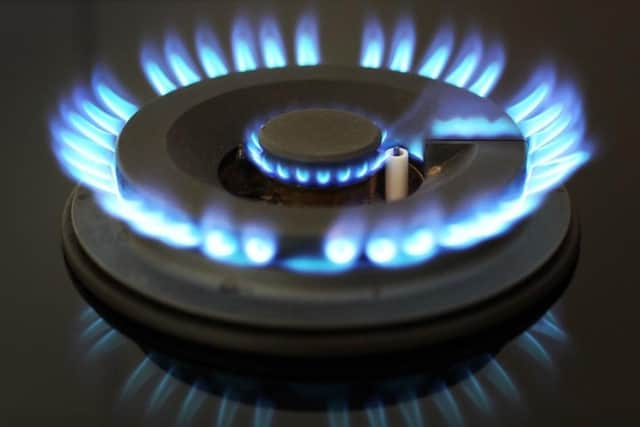Wakefield warning: Dangers of carbon monoxide poisoning highlighted as cold front continues
and live on Freeview channel 276
Northern Gas Network’s emergency response engineers have responded to over 2,600 carbon monoxide emergency calls from customers across the North of England, so it’s still a danger that many local people are affected by or at risk of.
Carbon monoxide (CO) is a poisonous, colourless and odourless gas that is produced when carbon fuels are burnt. It can leak from incorrectly fitted, badly repaired or poorly maintained gas appliances as well as flues, chimneys and blocked vents.
Advertisement
Hide AdAdvertisement
Hide AdYou can’t see or smell it, so you can’t detect it if it begins to build up in your home, and if you breathe it in, it can make you seriously ill.


The causes of CO poisoning and steps to take to stay safe:
Car exhaust fumes
A build-up of car exhaust fumes can cause CO poisoning, and on cold winter mornings many of us spend time warming up our car engines before setting off.
To avoid this danger, never leave your car running in an enclosed garage – even with the doors open – as it only takes a couple of minutes for a large amount of CO to build up in a small space.
Gas boilers
Our boilers work extra hard over winter to heat our homes and water, but badly maintained or poorly fitted boilers can cause CO poisoning.
Advertisement
Hide AdAdvertisement
Hide AdTo make sure your boiler is winter ready, have it serviced every year by a Gas Safe registered engineer.
Gas fires and cookers
Older, faulty or badly installed gas fires and cookers can be dangerous, so you need to take care when using them. Lazy yellow and orange flames, as well as a pilot light that frequently blows out, can be a sign that your cooker or fire isn’t working properly and could be leaking CO.
If you notice these signs, turn off the appliance immediately and have it checked by a Gas Safe registered engineer.
Log burners and open fires
Log burners and open fires help to keep many of us cosy over the winter, but they need a clear, clean, well-functioning flue or chimney to allow smoke to escape and ensure CO doesn’t build up inside your home.
Advertisement
Hide AdAdvertisement
Hide AdTo stay safe when keeping warm, have your chimney swept at least once a year by a reputable chimney sweep. Invest in an audible CO alarm.
As well as taking the steps above, one of the easiest ways to stay CO safe this winter is to invest in an audible CO alarm.
Similar to a smoke alarm and costing around £15, CO alarms are activated when CO is detected in the air and will sound an alarm to alert you of the danger. They’re small and easy to install, and you should have at least one on each floor.
If you have a gas fire, log burner or open fire, it’s a good idea to have one in the room it’s in too.
Advertisement
Hide AdAdvertisement
Hide AdSigns of CO poisoning include headaches, dizziness, nausea, breathlessness, collapse or loss of consciousness.
If you think you may have carbon monoxide poisoning, immediately turn off the appliance you think may be causing it, open windows and doors, leave the building and seek urgent medical advice.
You must also call the National Gas Emergency Service on 0800 111 999 and an engineer will come straight out to investigate and make the situation safe.
This line is in operation 24 hours a day, 365 days a year.
To find out more about how to stay CO safe this winter, click here.